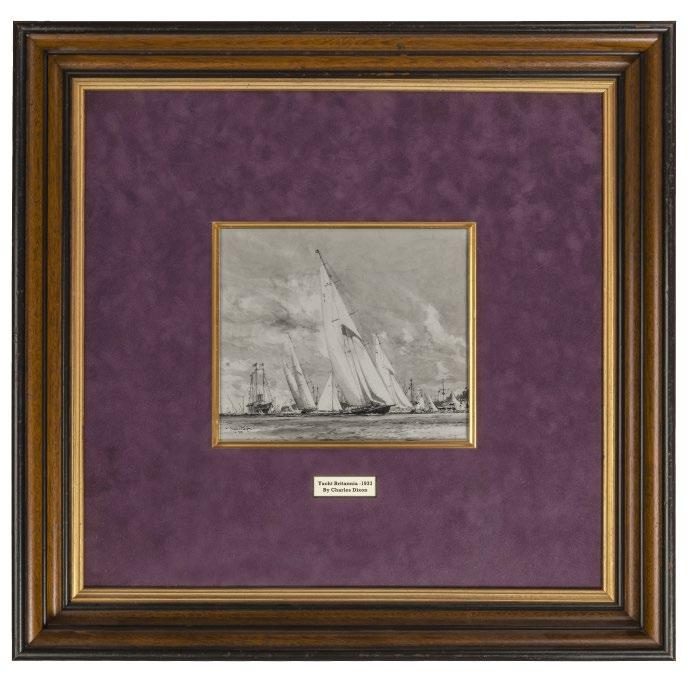78
1st Viscount Exmouth’s presentation sabre
Overall length: 35 ½ in (90 cm)
An ormolu-mounted naval presentation scimitar of Admiral Sir Edward Pellew, 1st Viscount Exmouth. With oriental curved single-edged blade damascened in gold with a Turkish inscription ‘pellou...serdümen’ against a dotted ground, the hilt with an ivory grip and tapering quillons each terminating as a hand grasping a ball, grip mounted on one side with a gilt plaque engraved ‘W to EP’, and on the other with a fouled anchor. The inside of the grip is later mounted with a gilt rectangular plaque engraved ‘This Sword of Ad.l. Visc.t Exmouth Presented to his Flag Lieu.t & attached Friend Captn. J.S.W. Johnson R.N. By F.B.R.P. 1845.’ In the original oriental woodlined ormolu scabbard embossed and chased throughout with scales. Circa 1815 Admiral Sir Edward Pellew GCB, first Viscount Exmouth (1757-1833) ran away to sea at the age of fourteen. From a Cornish seafaring family of modest means, he nevertheless enjoyed the local patronage of Lord Falmouth and the Boscawen family securing a position as captain’s servant in Juno, the first rung in a naval officer’s career. In the American War, he served with great distinction at Lake Champlain and, attached ashore, with General John Burgoyne’s army. Back in home waters, he would gain a reputation as the outstanding frigate commander of the age, a later model for the fictional Horatio Hornblower. In a series of actions through the 1790’s, many in Indefatigable, 64-
guns; he secured some remarkable prizes, perhaps most notably, the 74-gun French battleship Droits de l’homme which Pellew drove ashore and wrecked in January 1797. On land, too, he earned lasting fame when in the public’s full gaze he led the daring rescue of the crew and passengers of Dutton, a troopship wrecked at Plymouth. Fame and promotion brought command of Impétueux, 74-guns, an unhappy ship with a mutinous crew and an uncomfortable posting for the daring frigate captain. After an equally undistinguished spell in parliament Pellew, now rear-admiral, was appointed commanderin-chief in the East Indies, another position for which he was ill-suited. To his eternal regret this appointment made Pellew miss Trafalgar in October 1805 although his younger, and less distinguished brother Israel Pellew (1758-1832) fought the battle as captain of Conqueror. By the end of the war in 1815, Pellew had been raised to the peerage as Baron Exmouth and made Admiral of the Blue. But his greatest feat still lay ahead. As commander-in-chief of the Mediterranean, his attempts to secure treaties with the Barbary States to end Christian slavery had foundered with the massacre of Christians by the Bey of Algiers in 1816. With the backing of parliament, Exmouth returned with a squadron of warships and bomb vessels and, on 27 August 1816, directed a close and violent bombardment of the heavily-fortified city, forcing its submission and the



















































